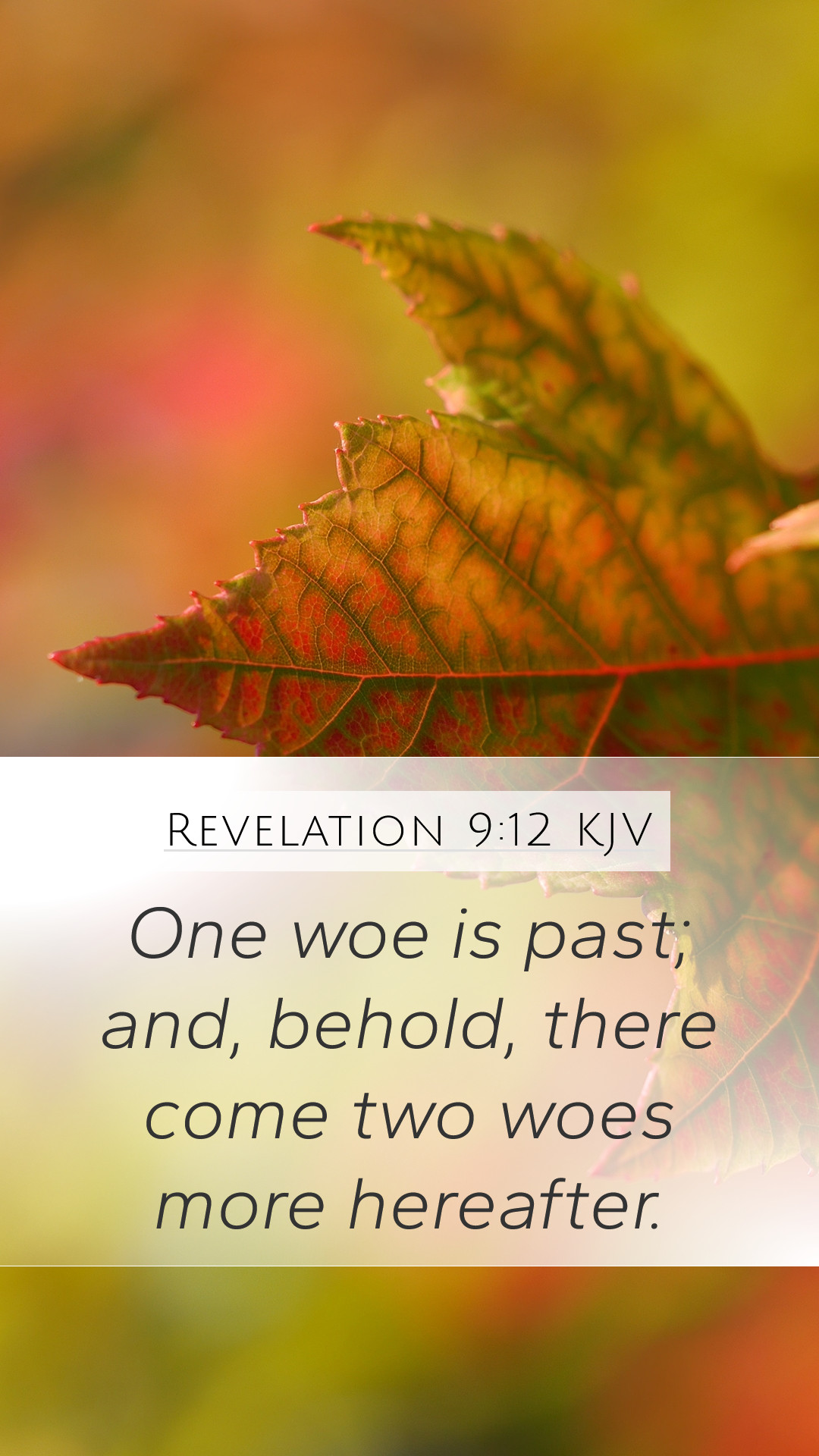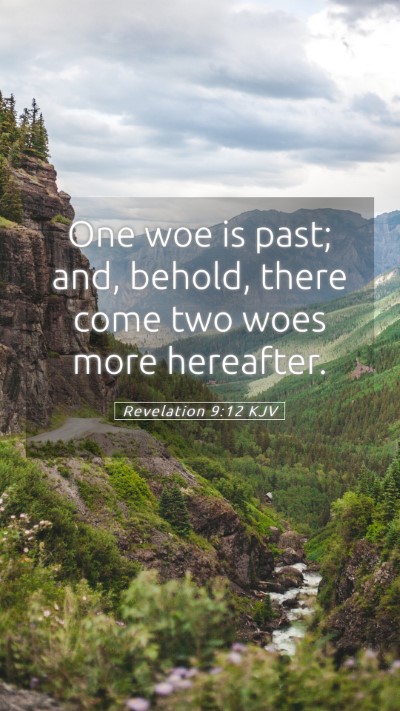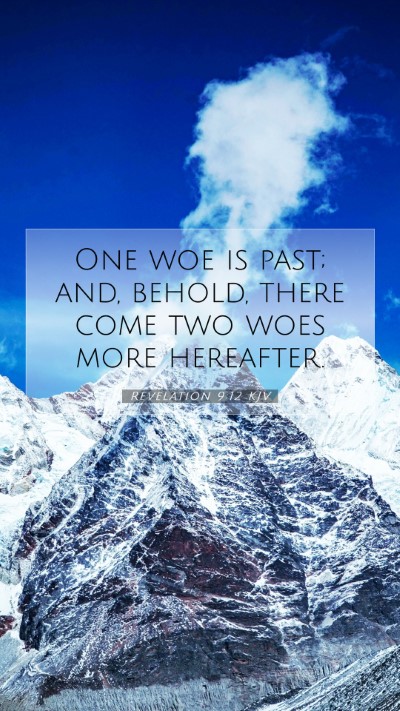Bible Verse Analysis: Revelation 9:12
Bible Verse: Revelation 9:12
Verse Text: "One woe is past; and, behold, there come two woes more hereafter."
Overview of Revelation 9:12
Revelation 9:12 is a prophetic declaration that marks a transition in the apocalyptic visions described in the Book of Revelation. This verse signifies the completion of the first woe and the anticipation of two more to come, highlighting the progressive nature of divine judgment during the end times.
Meaning and Significance of Revelation 9:12
This verse is integral to understanding the broader context of Revelation. The use of the word "woe" indicates a sense of urgency and impending doom. It carries implications of suffering and judgment that is unavoidable. The focus on “two woes more” serves to prepare the reader for what is to follow in the apocalyptic narrative.
Insights from Public Domain Commentaries
- Matthew Henry:
Henry emphasizes the solemnity of the declaration. He points out that this verse serves not only as a conclusion to the first woe but also as a warning about the severe calamities that are yet to come. The mention of "two woes" suggests that while judgment is certain, it is part of a larger divine plan intended to lead to repentance.
- Albert Barnes:
Barnes focuses on the structure of the judgments presented in Revelation. He interprets the mention of "woe" as representing distinct phases of divine retribution. According to him, each woe is a significant marker in the prophetic timeline that illustrates God’s unfolding plan for humanity. The use of "past" underscores that these warnings have been ongoing throughout history.
- Adam Clarke:
Clarke provides a historical context for the woes, linking them to various calamities faced by humanity. He suggests that the "woes" are not merely prophetic declarations but also reflections of historical events that foreshadow future occurrences. Clarke sees this verse as a reminder of the seriousness of sin and the necessity for mankind to heed the call for repentance.
Application in Biblical Exegesis
In the study of Revelation 9:12, it is essential to consider the theological implications. The notion that each woe evolves from the last emphasizes the cumulative nature of God's judgment. This verse encourages readers to examine their lives in light of these warnings, recognizing the ongoing relevance of the text in their spiritual journey since it calls for reflection and repentance.
Understanding the Context
To fully grasp the meaning of Revelation 9:12, it is critical to explore its placement within the chapter and the Book of Revelation as a whole. The first woe corresponds to the fifth trumpet, which unleashes significant turmoil upon the earth. This context provides a backdrop against which the subsequent woes must be understood, revealing the transformative processes involved during the apocalyptic events.
Related Bible Cross References
- Revelation 8:13: "And I beheld, and heard an angel flying through the midst of heaven, saying with a loud voice, Woe, woe, woe, to the inhabiters of the earth..." - This verse introduces the series of woes leading to Revelation 9:12.
- Matthew 24:21: "For then shall be great tribulation, such as was not since the beginning of the world to this time, no, nor ever shall be." - Establishes the severity of the judgments foretold.
- Revelation 11:14: "The second woe is past; and, behold, the third woe cometh quickly." - Draws a direct connection to the "woes" and their unfolding sequence.
Conclusion
Revelation 9:12 serves as a pivotal point in the narrative of divine judgments. An understanding of this verse can enhance one's perspective on Bible verse meanings and interpretations, assist in Bible study insights, and contribute to effective scripture analysis. The verse calls believers to engage deeply in understanding scripture as it pertains to the greater narrative of redemption and judgment presented in the Bible.


